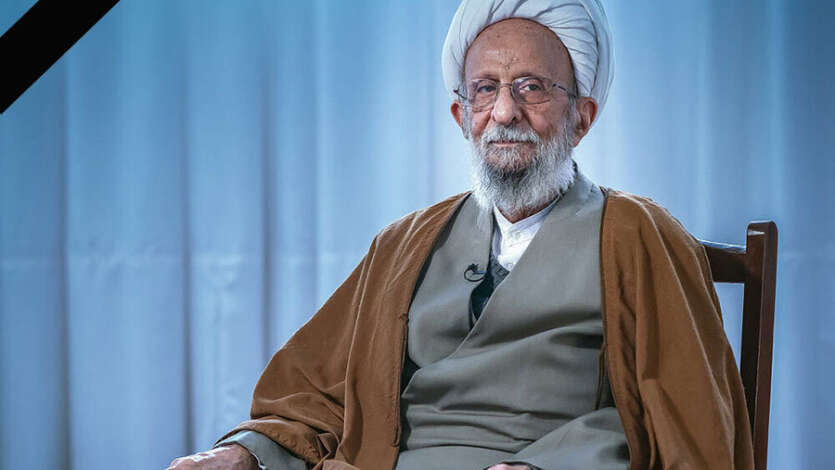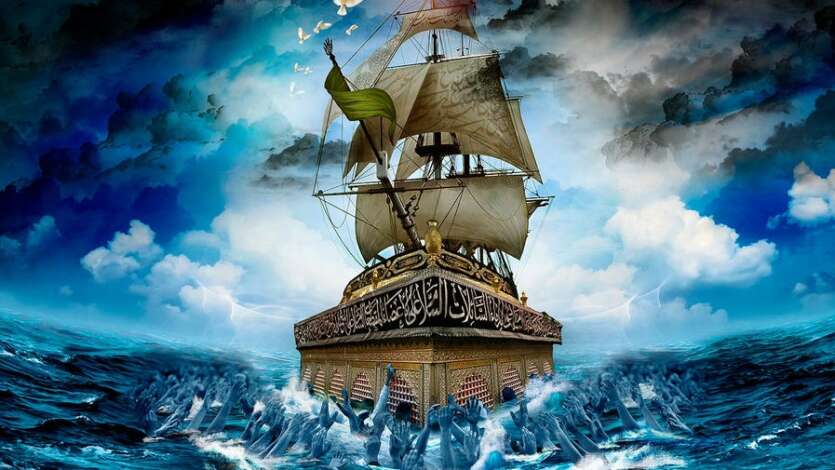Souls Sacrificed for Religion
By: Āyatullah Muḥammad Taqī Miṣbāḥ Yazdī
Translated by: Muhammad Reza Dorudgar & Zaid Alsalami
PART THREE
Two important questions:
The Ahlul Bayt (a.s.) tried to in any possible way to maintain the foundation of Islam and not let its essence be eradicated or forgotten in the annals of events and time. The Imāms (a.s.) did not spare anything in pursuing this path, and they fulfilled their role at any cost, with their whole life, their wealth, and even losing their wives, their children and themselves. The clearest evidence for this is what Ahlul Bayt (a.s.) endured in exiles, persecution, jail, punishment, torture and martyrdom. In all this, and at the peak of these sacrifices was the uprising of the Doyen of martyrs, Imām Ḥusain (a.s.) and the tragic event of Karbala.
Due to how important and significant this movement was in Islamic history, in preserving and maintaining this religion, it is necessary that we continue look into it and research it as much as possible. By exploring the different aspects of this event, we will discover many lessons we can use as lights to illuminate our path in life.
One of the core dimensions of Shīʿī ideology, which is also a part of Shīʿī culture as well is that the blood [death] of Imām Ḥusain (a.s.) preserved Islam. This concept exists in the minds of all devoted followers of Ahlul Bayt (a.s.), young or old, male or female, and we strongly believe in it. It is for this reason that we commemorate the days of Muḥarram and Ṣafar, and participate in mourning for Imām Ḥusain (a.s.) with all of our strength, because in reality honouring the Master of martyrs (a.s.) is in fact honouring Islam.
If we observe Karbala and the uprising of Imām Ḥusain (a.s.) in this particular way, this would bring about two important questions:
Question One: How did Imām Ḥusain’s uprising preserve Islam? This question is technically referring to the creational (takwīnī) and ontological aspect of this matter. In reality, we are asking to find out how could the martyrdom of one or more people in Karbala be the cause of preserving Islam, or protecting it and keeping it alive. What creational or ontological relation is there between martyrdom and protecting Islam?
Similar to this is the Islamic Revolution of Iran, where the question can be posed as to how did the martyrdom of the martyrs of the Revolution and the martyrs of the Imposed Iraq-Iran war become the cause for the preserving and continuation of the Islamic Revolution?
The overall outline of this question is: What relation is there between “martyrdom” and “preserving of religion”?
Question Two: In principle, is it permissible for someone to put themselves in danger, and to proceed to the edge of martyrdom and be killed in order to preserve and protect religion? This question in fact a jurisprudential and legislative question, more related to the tashrīʿī side of this matter. This question will carry greater importance when we note that in Islam, in many cases, even if it is an obligatory act, but if one is faced with harm or imminent danger, that obligation is abandoned and the mukallaf is no longer to do it. In other word, in choosing between doing an obligatory act and protecting one’s self, Islamic jurisprudence says protecting your life is more obligatory, and the other taklīf is removed from that person.

Regarding protecting oneself from harm, many arguments and evidence can be presented to prove this, and of course the most important and famous of them is the holy verse:
وَلا تُلْقُوا بِأَيْدِيكُمْ إِلَى التَّهْلُكَةِ
And do not cast yourselves with your own hands.[1]
Even though there are discussions surrounding the scope of what this verse indicates, but in general we have a jurisprudential principle in Islamic sharīʿah that is based on this verse. The principle in general is that any ruling (ḥukm) that causes harm and loss is removed. There are many examples for this ruling in fiqh. For example, if performing wuḍūʾ is harmful for someone, they do not do wuḍūʾ, but they do tayammum. Or, if someone is sick and fasting is harmful for them, it is not obligatory for them to fast, and they can redo it whenever they get better.
Dissimulation and its position in position in Islam
On this topic, a very important issue to discuss is the concept of precautionary dissimulation (taqiyya), which is one of the important rulings in Islam, and especially Shīʿī jurisprudence. Based on this ruling, one is able to conceal their belief and faith in order to protect their life, and while keeping their faith and belief in their heart, they display another religion or sect.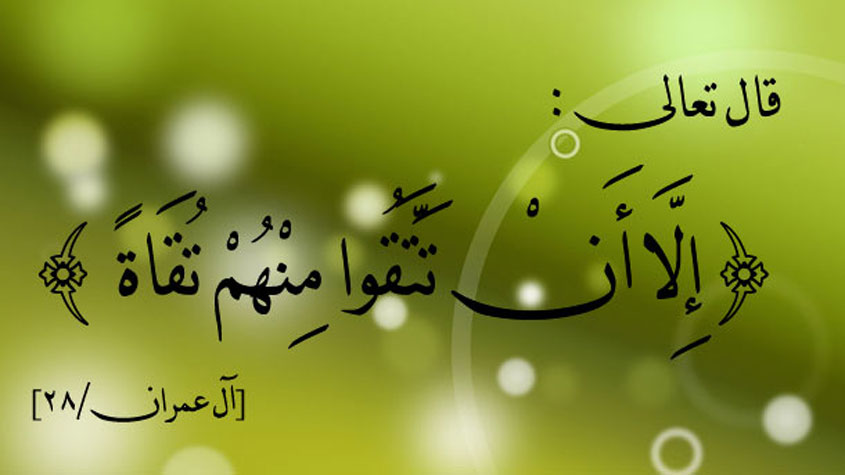
Taqiyya is among the certain and definite laws legislated in Islam, and has also been mentioned in the Quran.[2] In Islamic history, the first incident where this happened was the story of ʿAmmār ibn Yāsir (r.a.), who was one of the great companions of the Prophet (ṣ.a.w.). He was martyred in the Battle of Ṣiffīn, while fighting alongside Imām ʿAlī (a.s.). ʿAmmār’s parents were Yāsir and Summaya, and they were among the first to accept Islam in its early days. The Meccan pagans went to Yāsir and Summaya, asking them to announce their kufr and disassociate themselves from Islam. They refrained from doing so. The pagans tortured both of them, but Yāsir and Summaya still did not renounce their belief and refused to reject the call of Islam and the prophecy of Prophet Muḥammad (ṣ.a.w.). The torture continued, leading to their martyred. While this was happening, their son Yāsir declared he was no longer a believer and disassociated himself from Islam. He did this to protect his life, but yet he was very anxious and extremely upset for what he did. He went to the Prophet (ṣ.a.w.), weeping and crying, telling him the story, with shame and embarrassment. According to narrations, it is based on this event that the following verse was descended:
مَنْ كَفَرَ بِاللَّهِ مِنْ بَعْدِ إِيمَانِهِ إِلا مَنْ أُكْرِهَ وَقَلْبُهُ مُطْمَئِنٌّ بِالإيمَانِ
Whoever renounces faith in Allah after [affirming] his faith –barring someone who is compelled while his heart is at rest in faith.[3]
In any case, it is established that the Messenger of Islam (ṣ.a.w.) acknowledged and approved of what ʿAmmār did, also saying to him that he wished his parents would have done the same thing and remained alive.
Taqiyya is not only for individual and personal cases, but we have also social taqiyya. This is when a group of believers fall in danger because of their position regarding their faith or stance. They can assimilate on the outside with those of other beliefs and declare atheism to save their lives. While protecting their lives they can use the opportunities and facilities around them in favour of Islam, and when needed to oppose their enemies. The verse in the Quran that refers to this matter is:
لا يَتَّخِذِ الْمُؤْمِنُونَ الْكَافِرِينَ أَوْلِيَاءَ مِنْ دُونِ الْمُؤْمِنِينَ وَمَنْ يَفْعَلْ ذَلِكَ فَلَيْسَ مِنَ اللَّهِ فِي شَيْءٍ إِلا أَنْ تَتَّقُوا مِنْهُمْ تُقَاةً وَيُحَذِّرُكُمُ اللَّهُ نَفْسَهُ وَإِلَى اللَّهِ الْمَصِيرُ
The faithful should not take the faithless for allies instead of the faithful, and whoever does that Allah will have nothing to do with him, except when you are wary of them out of caution. Allah warns you to beware of [disobeying] Him, and toward Allah is the return.[4]
Therefore, in Islam it is very important to save and protect lives, and in many instances when the mukallaf is faced with choosing between protecting his life and something else, it is protecting of life that has precedence, and the other taklīf be abandon. As mentioned, even in important and fundamental obligations like prayer, fasting, etc., if doing them puts a person in danger, they must not do it.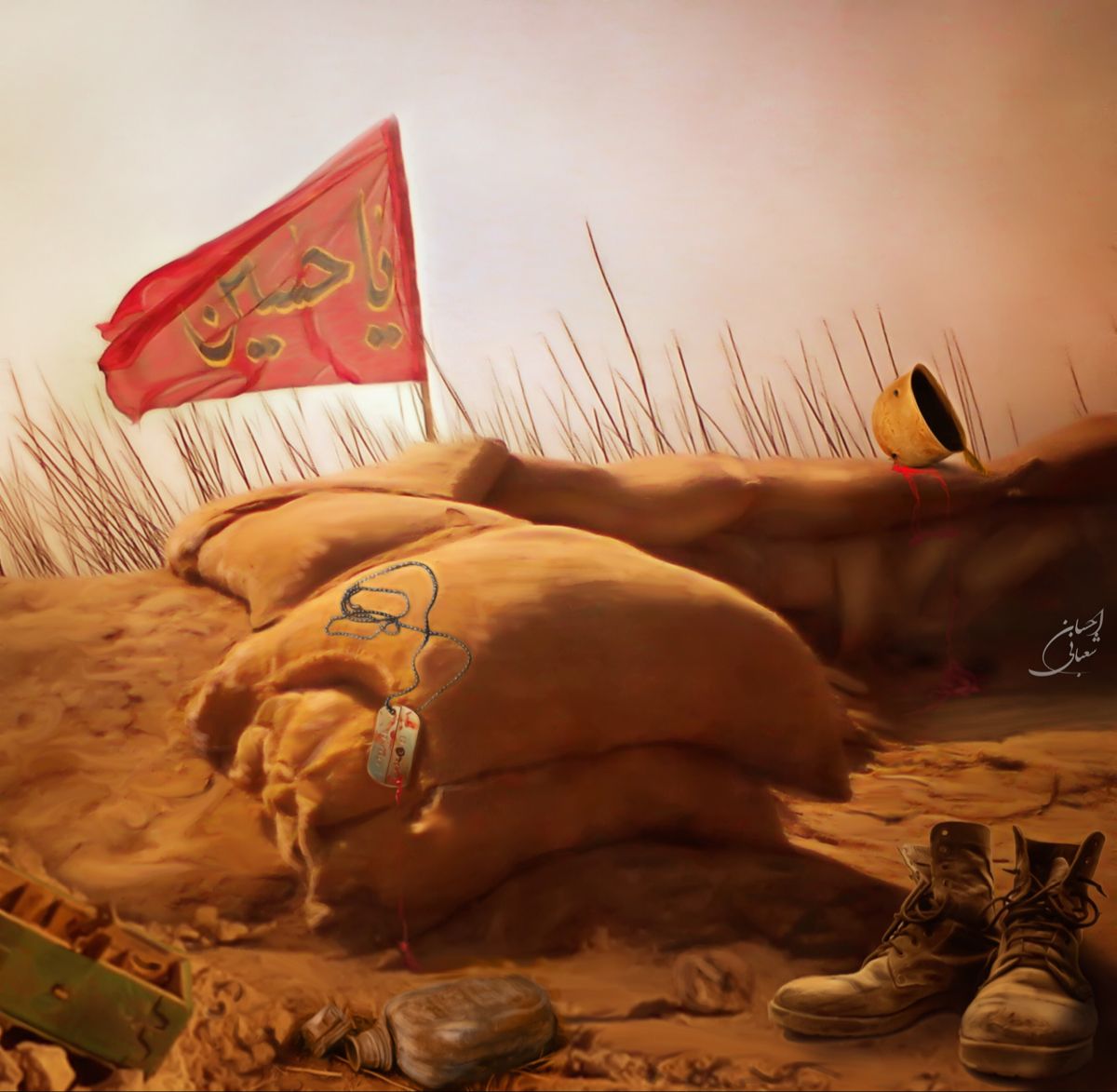
Of course, obligatory acts are one thing, but the Quranic verse explicitly expands further than just obligatory acts and includes protecting of life. For the purpose of saving one’s own life, they can renounce even their own faith and religion, or renounce their affiliation to the Shīʿa creed and on the outside declare atheism, impiety or another sect. This is not limited only to individuals, but even if a group or community of Muslims face the same situation, they can appear to declare their rejection of Islam and faith. This is as brief as it can be, and the topic of taqiyya is very extensive and broad.
Critiquing a theory that analyses the event of ʿĀshurāʾ
The question here is why didn’t Imām Husain (a.s.) observe taqiyya against Yazid and his proponents? Not only did Imām Husain (a.s.) not observe personal and individual taqiyya to save his life, but he also took his wives, children, brothers, companions, and his own infant son with him. They were all there with him in the battlefield at Karbala, most of them losing their lives as well. How can Imām Ḥusain’s actions conform with the fiqhī ruling that was just explained, and how can what he did be justifiable according to Islamic law? This is a very fundamental and important question.
This question has been discussed in detail from early times and throughout our history. Unfortunately, some narrow-minded people when dealing with this question, instead of giving a reply to eliminate this misconception, they avoid answering it. They say that Imām Husian (a.s.) did not know he will be martyred, otherwise he would not have gone towards Kufa. The Kufans invited him, writing more than twelve thousand to him, saying that if he was to come to Kufa, they will pledge their allegiance to him. Imām Ḥusain (a.s.) relied on Kufans and their letters, and headed towards them, not knowing that they would leave him and make him face Yazid and his mob all alone. He did not know that this journey will end with his martyrdom and the martyrdom of his companions.
According to this view, if Imām Ḥusain (a.s.) was aware of the outcome of his movement, based on the overall rulings of taqiyya and the obligatory of saving one’s life, he would never have proceeded and the event of Karbala and ʿĀshurāʾ would not have occurred.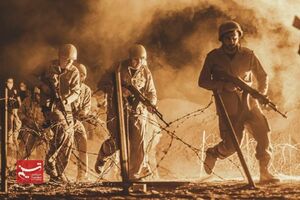
Those familiar with the teachings of Shīʿī ideology and know the biography and history of Ahlul Bayt (a.s.) know well that this response is very shallow and improvident. There are many different indications and evidence showing that Imām Ḥusain (a.s.) was aware that he will ultimately be martyr in this way, and this was entirely clear for him. One of these evidences is when him wanted to leave Madina, he visited the grave of his grandfather, the Messenger of God (ṣ.a.w.), bid farewell to him and said:
أَتَانِي رَسُولُ اَللَّهِ (صَلَّى اَللَّهُ عَلَيْهِ وَ آلِهِ) بَعْدَ مَا فَارَقْتُكَ، فَقَالَ يَا حُسَيْنُ اُخْرُجْ فَإِنَّ اَللَّهَ قَدْ شَاءَ أَنْ يَرَاكَ قَتِيلاً
After we separated, the Messenger of God (ṣ.a.w.) came to me [in a dream] and said: O Ḥusain, leave [towards Iraq], as it is the will of God that He sees you slain.[5]
There are many narrations and historical testimonies that prove Imām Ḥusain (a.s.) was well aware that he will ultimately be martyred in this path. In line of this, there is no place for this view that Imām Ḥusain (a.s.) was not aware of what was going to happen or what his movement was going to end with should he accept the invitation from the people of Kufa. Or that if knew that those in Kufa will eventually betray him, resulting in his martyrdom, and therefore he would stay in Madina and not leave.
There are many such instances that occurred with us during the eight-year imposed war on the Islamic Revolution and the sacred defence (defāʿ-e muqaddas). Many people in the battlefront threw themselves over barbed wire or on mines in order to clean the path for other fighters to advance. They knew what they were going to do would result in their death and martyrdom. There are also numerous stories of people who by a dream or other means knew that they were going to die, and in some cases informed others of the day, hour and place that they will be martyred.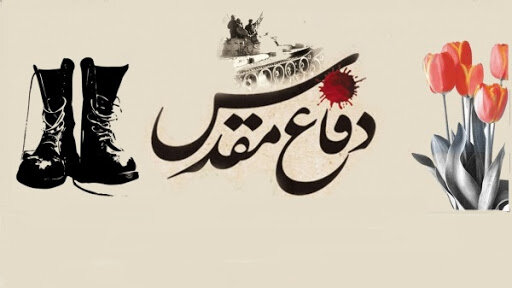
We ask those who believe in that theory about Imām Ḥusain (a.s.) and the event of Karbala, was what these fighters did also oppose the rulings of Islam? According to “necessity of saving one’s life”, should they not have even gone to the war? If they did not go to the battlefield and defend the Islamic borders and Muslims by giving their life and blood, who must bear this burden?
The reality is that the disabled veterans (jānbāz) and those who sacrificed their lives were the ones who protected the Revolution and the Muslims in this country. It is because of them that we are now able to peacefully mourn in Muḥarram in mosques, Ḥusainiyyas and processions, gathering for Imām Ḥusain (a.s.), all in debt to the blood of those eminent martyrs.
Therefore, the view that says if certain that they will be killed or martyred must not go ahead and must protect his life is indeed an ignorant and false view. Those who adopt such ideas or say such things are very distant from the knowledge of Islam and Shīʿa teachings, and unfamiliar of its true spirit.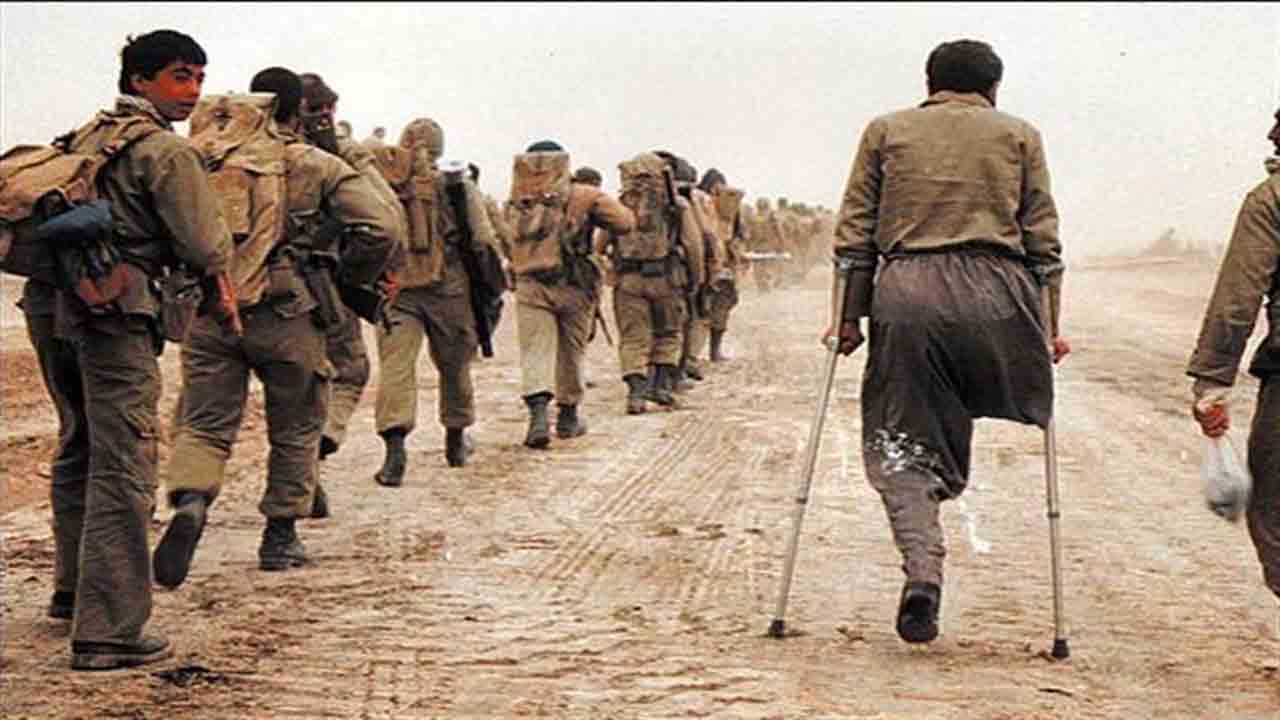
One might say: Ok, war is different. If someone initiates an offensive war and invades us, we must naturally defend ourselves, even if it leads to martyrdom. However, the case of Karbala was different. Yazid initially did not have the idea and intention for war. In Madina, Yazid just wanted Imām Ḥusain (a.s.) to pledge allegiance to him. If Imām Ḥusain (a.s.) had accepted and pledged allegiance, Yazid would have left him alone and it would not have led to war, martyrdom and the captivity of the members of Ahlul Bayt (a.s.). In fact, as Imām Ḥusain (a.s.) did not comply and refused to pledge allegiance to Yazid, the problem escalated and it caused the war, eventually resulting in his killing and the killing of those with him.
Therefore, this war and the battle that we had in Iran, with the eight years of the sacred defence is different to Karbala and Imām Ḥusain (a.s.). We should not compare them with each other. In the imposed Iraq-Iran war, the enemy was the initiator of war and invaded us. We were obligated to defend, and everyone knows that war is not amusement, and there will certainly be casualties and death. As a result, if it is defensive, even if one knows and is certain that they will be killed, they must defend and resist.
The issue of Karbala is not similar to our imposed war. Imām Ḥusain (a.s.) could have accepted to pledge allegiance to Yazid, and the problem would be finished with kindness and goodness, without spilling any blood at all.
Even when Ḥurr approached Imām Ḥusain (a.s.), he told the Imām (a.s.) his duty was to take him to Kufa and make him pledge allegiance. If Imām Ḥusain (a.s.) would have accepted this proposal, the issue would have been resolved and finished in a good way, avoiding any death, captivity or any of the other calamities that occurred.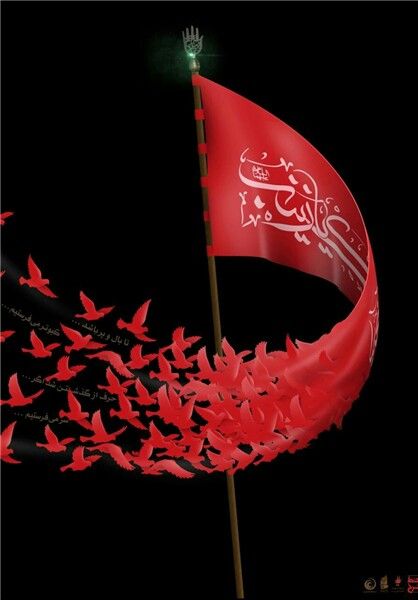
The correct viewpoint in analysing the event of ʿĀshurāʾ
The purpose of presenting these details, theories, critiques and misconceptions is to clarify how serious the question is and how important it is to further research the detailed explanations that can be given, even on an expert and ijtihādī level. We thank the Almighty that due to the blessings of this revolution, the minds of people, especially the youth, have opened and their level of knowledge and insight has raised so high that they are able to comprehend deep and technical topics. With the youth being able to digest these delicate matters, we can have these scientific discussions on a relatively expert, even public gatherings and not have any concern about how people are going to understand them.
The question at hand is that if the law of Islam is that saving life is obligatory, and in order to keep it away from harm, taqiyya must be observed, so why did Imām Ḥusain (a.s.) not observe taqiyya? If Imām Ḥusain (a.s.) was to have done what ʿAmmār ibn Yāsir did during the era of the Prophet (ṣ.a.w.), declaring disbelief to save his life, he would have saved his life and could have continued to promote and strengthen the principles and teachings of Islam for many more years.
Imām Ḥusain (a.s.) did not need to declare being a disbeliever, like ʿAmmār. It was just enough that he does not oppose Yazid. If he was to have just said this one sentence [of allegiance], he would have saved his life and could valuably serve Islam and the Muslim society for the rest of his life.
This misconception is further strengthened when we mention that Imām Ḥusain (a.s.) along with his brother Imām Ḥasan (a.s.) had tolerated for years the government of someone like Muʿāwiyah. Imām Ḥasan (a.s.) even had even accepted to sign peace treaty with Muʿāwiyah. Imām Ḥasan (a.s.) and Imām Ḥusain (a.s.) lived in Madina during these years, conducting their religious obligations and duties, and leading the people, and Muʿāwiyah was ruling and busy with what he was doing in Shām. What would be the problem if this method continued on during Yazid’s reign?
Of course, Yazid was different to Muʿāwiyah. Yazid was young and immature, having no sense of politics, and in many cases, he did not care about Islamic rulings, even publicly. Nonetheless, it could have been possible more or less to put up with it, especially if we consider that opposing Yazid will result in valuable loss. The cost was the head of Abā ʿAbdillah al-Ḥusain (a.s.) raised on the top of a spear, along with eighteen of the best of Banī Hāshim and a group of the greatest Muslims were martyred. Seyidah Zainab and other women and children of Ahlul Bayt (a.s.) became captives, paraded from town to town for all onlookers to see. To sum it all, what other calamity did they not experience?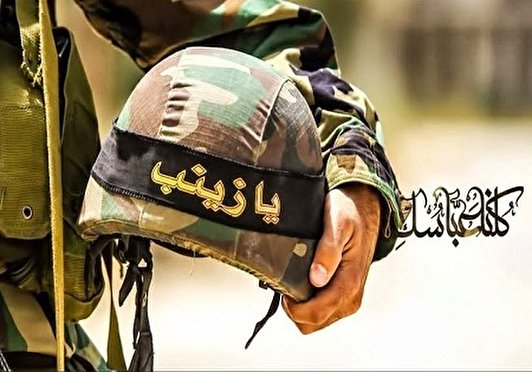
With all of this, why didn’t Imām Ḥusain (a.s.) not choose his brother Imām Ḥasan’s method during the era of Muʿāwiyah’s time, and why did Imām Ḥusain (a.s.) have to raise the flag of opposition and choose the path that would be incompatible with him?
Giving extensive and vast details to this discussion does need prior background research that would take up a lot of time, more than what we have here. However, we will try in brief to clarify its dimensions as much as possible.
The first point regarding this matter is that we must understand that the concept of “defence” is not limited to the meaning we generally have in our mind. Typically, when the topic of defence is discussed, what comes to our mind is defending of land and territory. For example, when we say: “in the eight-year imposed war, our youth were defending,” what we think of is that they were defending this territory from foreign invasion. Every nation usually has this kind of national patriotism, and if their country was to be invaded, they would defend it against the invaders. Ultimately, because we are Muslims, instead of using expressions like defending our country, defending our land and territory, etc, we use terms like: defending of Islamic territory, Islamic land, and so on.
Defence is also not just limited to defending of territory. If an enemy invades an Islamic land, without doubt it would become obligatory for all the Muslims to defend the Islamic territory and protect it from invasion. Defence is not just limited to this. Another obligatory and necessary duty is when enemies attack the Islamic faith and the beliefs of Islamic society, it must also be defended.
What is more important, the land of an Islamic country, or the heart and spirit of people? If the land of an Islamic country has value, we only say we must defend it only because of its connection to Islam and Islamic society, or else it would be of no value if it was in the hands of others. For a Muslim, territory has no substantial value, and it holds value only because of its relation to Muslims and that it is the “Abode of Islam”.
Now, is it possible to conceptualise that land gains honour and sanctity because of its connection to Islam, but Islam itself has no honour or sanctity?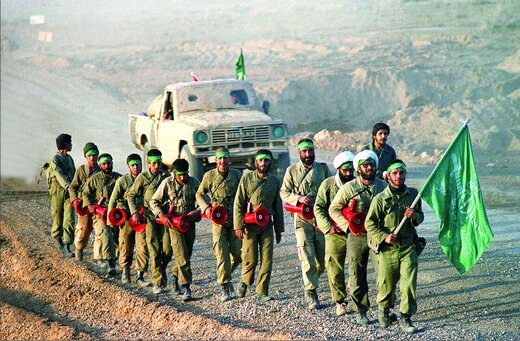
Due to land being affiliated and attached to Islam, that land becomes so important that we say and accept that tens of thousands of people can be sacrificed and give their lives away for it. But what happens if Islam itself is in danger? What do we say then? If the enemies of Islam say that your territory is yours and we have nothing to do with it, but abandon Islam and do not be Muslims. Do we not have any duty towards this?
Invading and attacking does not necessarily need to be on territory and land, with guns and tanks for us to say that defence is obligatory.
If we know that the enemy intends to strike the quintessence of Islam and overthrow the Islamic government, in this case it is necessary to defend, oppose and take necessary actions.
Sometimes, the enemy has nothing to do with the country’s territory, property and resources. They might not intend to rule over the country, and say that the resources are yours and we will pay you generously for what you have, but just leave Islam and Islamic practices.
At times, the enemy could even be satisfied with Muslims praying, fasting, doing adhān, having majālis, mourning, etc., but just object with Muslims observing the social rulings of Islam. They say keep all of these rulings, but do not apply the penal law of Islam, like capital punishment. In other words, stay away from politics and the government. This is the exact situation of many Islamic countries in today’s society. You can find many Islamic countries that have mosques, do adhān, pray, fast, have Ḥajj pilgrimage and other Islamic obligations, but religion is separated from politics. Their religion does not go beyond their mosque. The super-power governments like the U.S, Europe and other colonialist countries would have no issues with them at all.
Building a mosque, praying or mourning, does not bring any harm or danger to U.S and Europe, so they do not have any serious opposition or major problem with this kind of Islam. The problem and sensitivity is when Islam wants to involve itself in society and govern the Muslims based on social Islamic laws. This is when the U.S government and its allies will sense danger and get involved.
If we want to have an Islamic economic system, and say that Islamic society must consider this verse: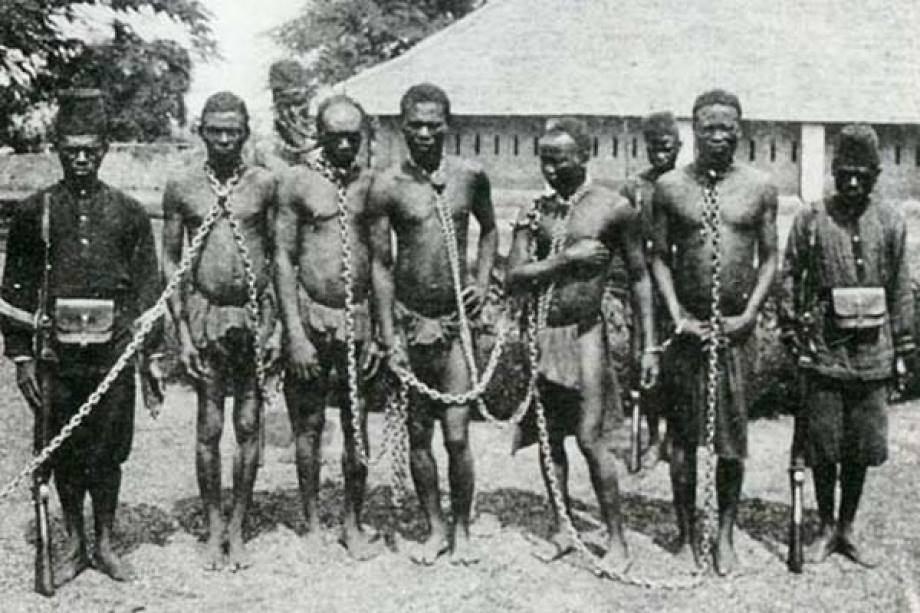
وَلَنْ يَجْعَلَ اللَّهُ لِلْكَافِرِينَ عَلَى الْمُؤْمِنِينَ سَبِيلا
And Allah will never provide the faithless anyway [to prevail] over the faithful.[6]
Where Muslims must keep their independency and dignity, this when imperialist and colonialist governments will no longer stay calm or quiet. This verse says that non-believers must not dominate or control Muslims in areas like their economy, culture, military, politics, marriage, education, and so on. Muslims are obliged to avoid being controlled or dominated by others. The Quran says that Muslims and an Islamic society must always live with honour:
وَلِلَّهِ الْعِزَّةُ وَلِرَسُولِهِ وَلِلْمُؤْمِنِين
Yet all might belongs to Allah and His Apostle, and the faithful.[7]
If mosques are built, the sound of adhān is very loud, and the lines of people praying are full and crowded, but the economy of that Islamic country is controlled by the U.S government, such an Islamic society cannot have honour.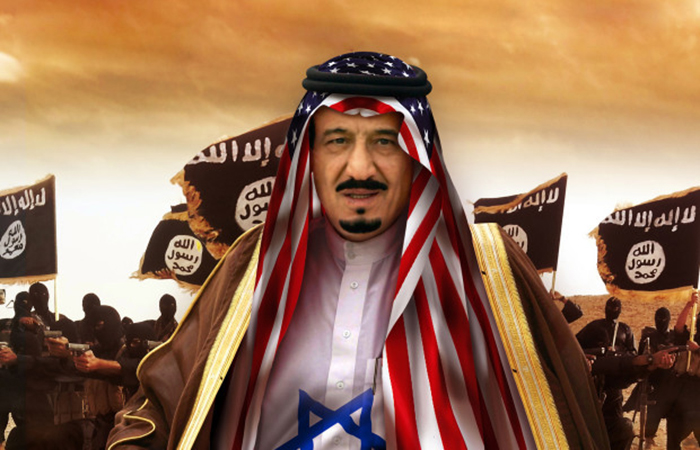
This is the same Islam that Imām Khomeini referred to as “American Islam”.
America has no quarrel with this kind of Islam, and would even spend money to promote it. America says pray, mourn, fast, do Ḥajj, or whatever you want, but the heart of your economy is in our hands and you submit to the world bank and are controlled by the International Monetary Fund. The U.S decides what the price of oil will be, and they will decide who you deal with, and who you sign contracts with, and which company. They decide if you can have nuclear technology, uranium enrichment, and so on.
This is what we mean when we say defence is not just about land and territory. Attacking honour and independency of a sovereign state is worse than invading land and territory. As defending an invasion of a country is necessary, so is defending anything that leads to invasion, or we can say that this is more necessary.
Many people assume that defence is when the enemy raises it sword and wants to kill people, but destroying the dignity and independence of people is even worse and more painful.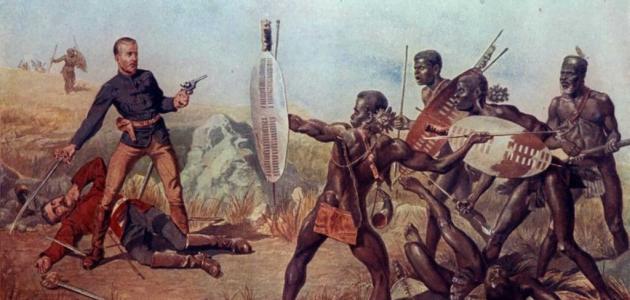
A Muslim would prefer martyrdom in the way of their religion, dignity and honour, rather than subdue himself to the will of an enemy who wants to destroy him and decide his fate and destiny for him.
Bowing to such humiliation is worse than any kind of death and killing. This is why Imām Ḥusain (a.s.) said:
 هیهات منَّا الذِّلَّة
هیهات منَّا الذِّلَّة
Far away we are from humiliation.[8]
And:
إِنِّي لا أری الموتَ الاّ سعادةً و لا الحیاةَ معَ الظّالمینَ الاّ بَرَماً.
I do not see death except as happiness, and a life with oppressors is nothing but disgrace.[9]
Cont….
[1] Quran, 2: 195.
[2] For example, see: Quran: 16: 106. 18: 19–20. 40: 28. 3: 28. 4: 97.
[3] Quran, 16: 106.
[4] Quran, 3: 28.
[5] Biḥār al-Anwār, v0l. 44, p. 364, ḥ. 2
[6] Quran, 4: 141.
[7] Quran, 63: 8.
[8] Al-Iḥtijāj, vol. 2, p. 300.
[9] Biḥār al-Anwār, vol. 44, p. 193, ḥ. 4.
![]()

